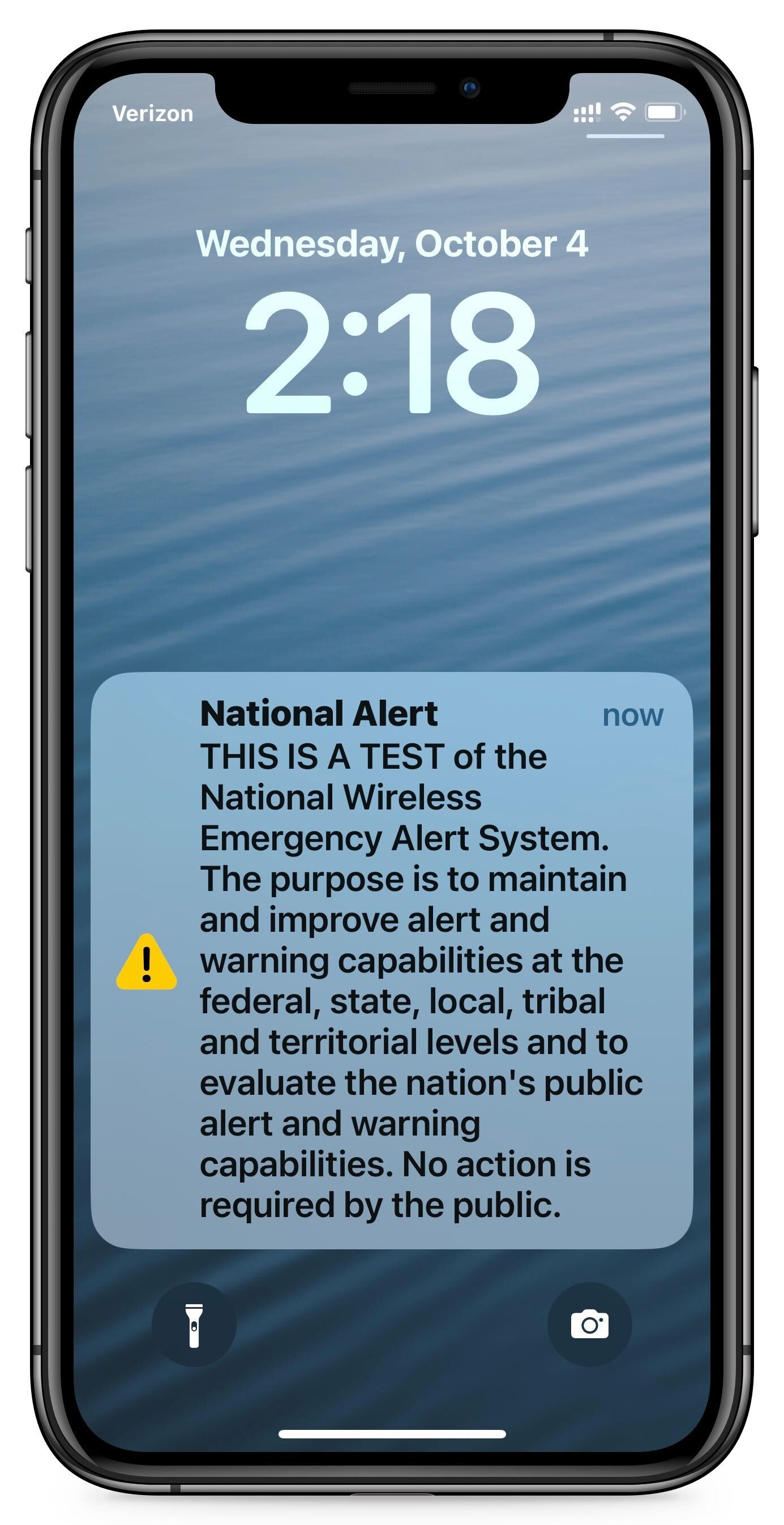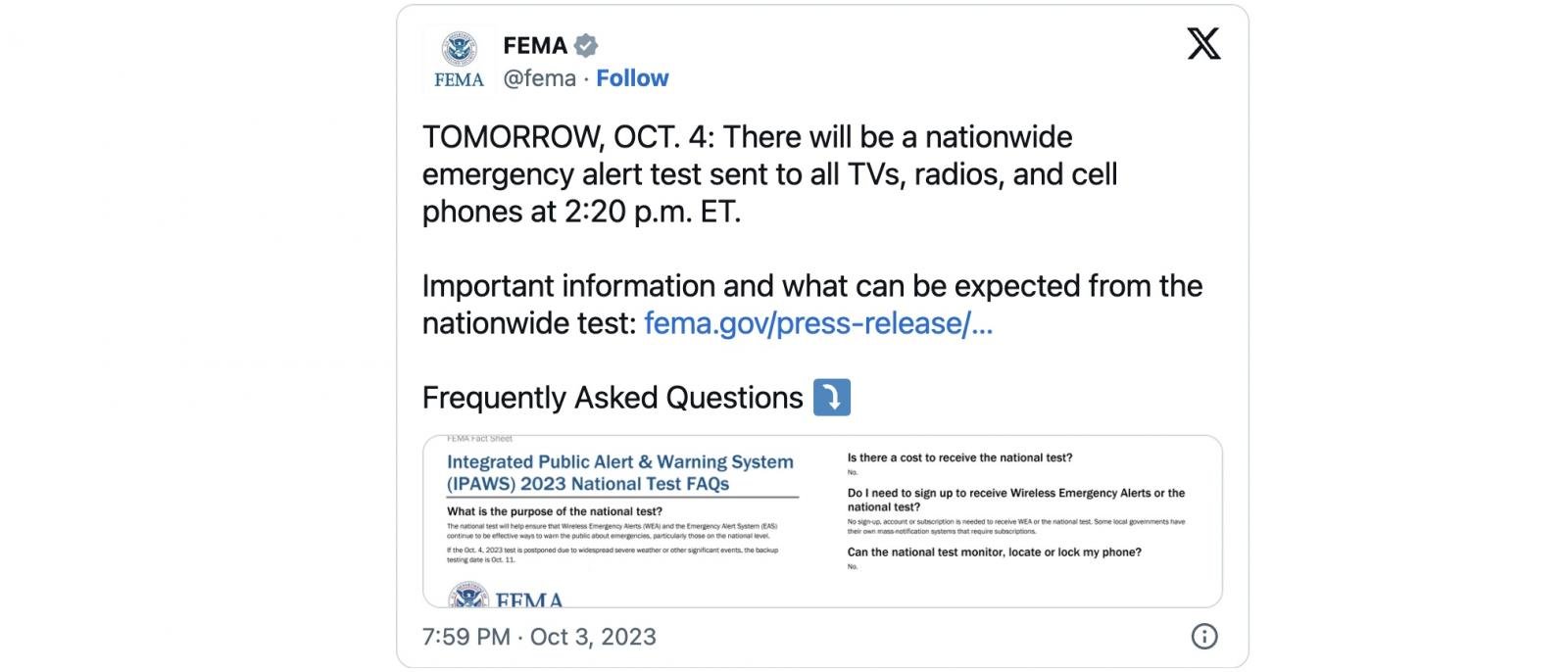
The U.S. Federal Emergency Management Agency (FEMA) and the Federal Communications Commission (FCC) will run an emergency alert test today to check Emergency Alert System (EAS) and Wireless Emergency Alerts (WEA) capabilities nationwide.
This nationwide test is scheduled for today, Wednesday, October 4th, at approximately 2:20 P.M. Eastern Time, with WEA alerts to be sent to cell phones and EAS alerts to radios and televisions.
At around 2:20 P.M. ET, cell towers across the United States will begin transmitting the test message for roughly 30 minutes.
During this timeframe, all WEA-compatible wireless phones will receive the text alert if turned on, within the range of an active cell tower, and in an area with coverage from the wireless provider.
On consumers' phones, WEA alert messages will read: "This is a test of the National Wireless Emergency Alert System. No action is needed."
According to FEMA's announcement, all TVs and radios tuned into a TV/radio station will also receive today's EAS test messages.
They will say, "This is a nationwide test of the Emergency Alert System, issued by the Federal Emergency Management Agency, covering the United States from 14:20 to 14:50 hours ET. This is only a test. No action is required by the public."
The WEA segment of the test will use FEMA's internet-based Integrated Public Alert and Warning System (IPAWS), a system that enables state authorities to transmit emergency messages via various communication networks.
Simultaneously, the EAS alerts will be pushed as Common Alerting Protocol (CAP) messages via the Integrated Public Alert and Warning System-Open Platform for Emergency Networks (IPAWS-OPEN).
Alerts blocked on powered-off phones and those in airplane mode
While FEMA states that recipients cannot opt out of receiving these alerts, phones that are turned off or set to 'airplane' mode before the test alert transmission and remain inactive until after the WEA Test concludes (which takes approximately 30 minutes) should not receive the test message.
However, users are strongly advised to permit the messages to go through to confirm their device's receptivity. If the user is on a phone call at the time of the test, the WEA message will not interrupt the call.

"The purpose of the test is to ensure that the systems continue to be effective means of warning the public about emergencies, particularly those on the national level," FEMA said.
"In case the Oct. 4 test is postponed, due to widespread severe weather or other significant events, the back-up testing date is Oct. 11."
Like the familiar Amber Alert sound, the WEA alert tone typically plays only when the device receives the alert and will automatically stop when the user interacts with the phone.
Today's national test is mandated by legislation passed in 2015 that requires FEMA to test IPAWS systems by conducting WEA and EAS tests at least once every three years (the most recent one was in 2021).




Comments
gryphenwings - 7 months ago
Definitely ready for the Marburg virus to be activated. The looming zombie apocalypse draws nigh.
/s